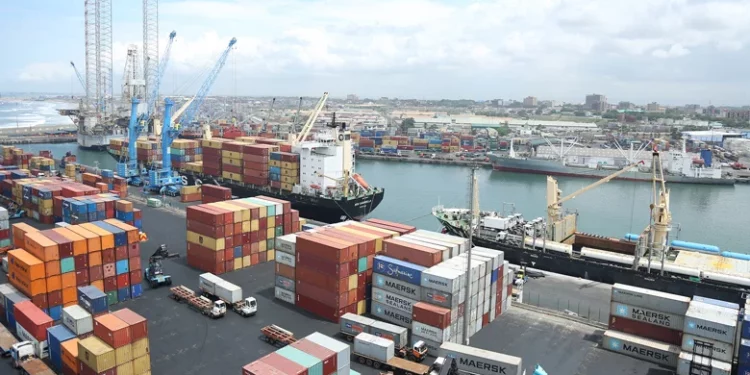High cost of doing business hinders traffic at Ghana’s Ports
The Ghana Union of Traders Association (GUTA) has attributed the recent halt in traffic at the country’s ports to the high cost of doing business in the country.
In an interview, Dr Joseph Obeng, the President of GUTA, stated that the expensive nature of doing business in Ghana was frustrating entrepreneurs, who are losing out to their colleagues in neighbouring countries. As a result, many traders are opting to conduct their business and buy goods through ports in neighbouring countries like Togo.
Dr Obeng pointed out that the high cost of doing business in Ghana was making the country irrelevant in the recently established continental free trade area. He noted that even among cross-border trading activities in West Africa, Ghana was losing out to neighbouring countries like Togo. This was due to the prohibitive costs of doing business in Ghana, which were curbing the turnover of traders.
Moreover, Dr Obeng linked the inflation being experienced in Ghana to the decline in traffic at the ports. He explained that the excessive burden of inflation on both traders and consumers was curtailing turnover, which was making it difficult for traders to service their loans. This, in turn, was affecting their businesses.
According to Dr Obeng, excessive taxation on services at the port was another disadvantage that was driving traders away from Ghana’s ports. He noted that some traders were opting to evade taxes by smuggling their goods or avoiding the mainstream ports and channeling their goods through other areas.
The challenges being experienced in Ghana are not unique to the country. Across Africa, the cost of doing business is high, which is deterring investment and economic growth. According to the World Bank’s Doing Business report, sub-Saharan Africa has some of the world’s most challenging business environments. This is due to factors such as poor infrastructure, limited access to credit, and high levels of corruption.
To address these challenges, African countries must prioritize structural reforms that will improve the business environment. This could involve investing in infrastructure, reducing red tape, and tackling corruption. Additionally, governments could explore ways to reduce the cost of doing business, such as offering tax incentives and streamlining the regulatory framework.
The halt in traffic at Ghana’s ports is largely due to the high cost of doing business in the country. This is a challenge that is not unique to Ghana but is prevalent across Africa. To improve the business environment and attract investment, African governments must prioritize structural reforms that will reduce the cost of doing business and improve the ease of doing business.






